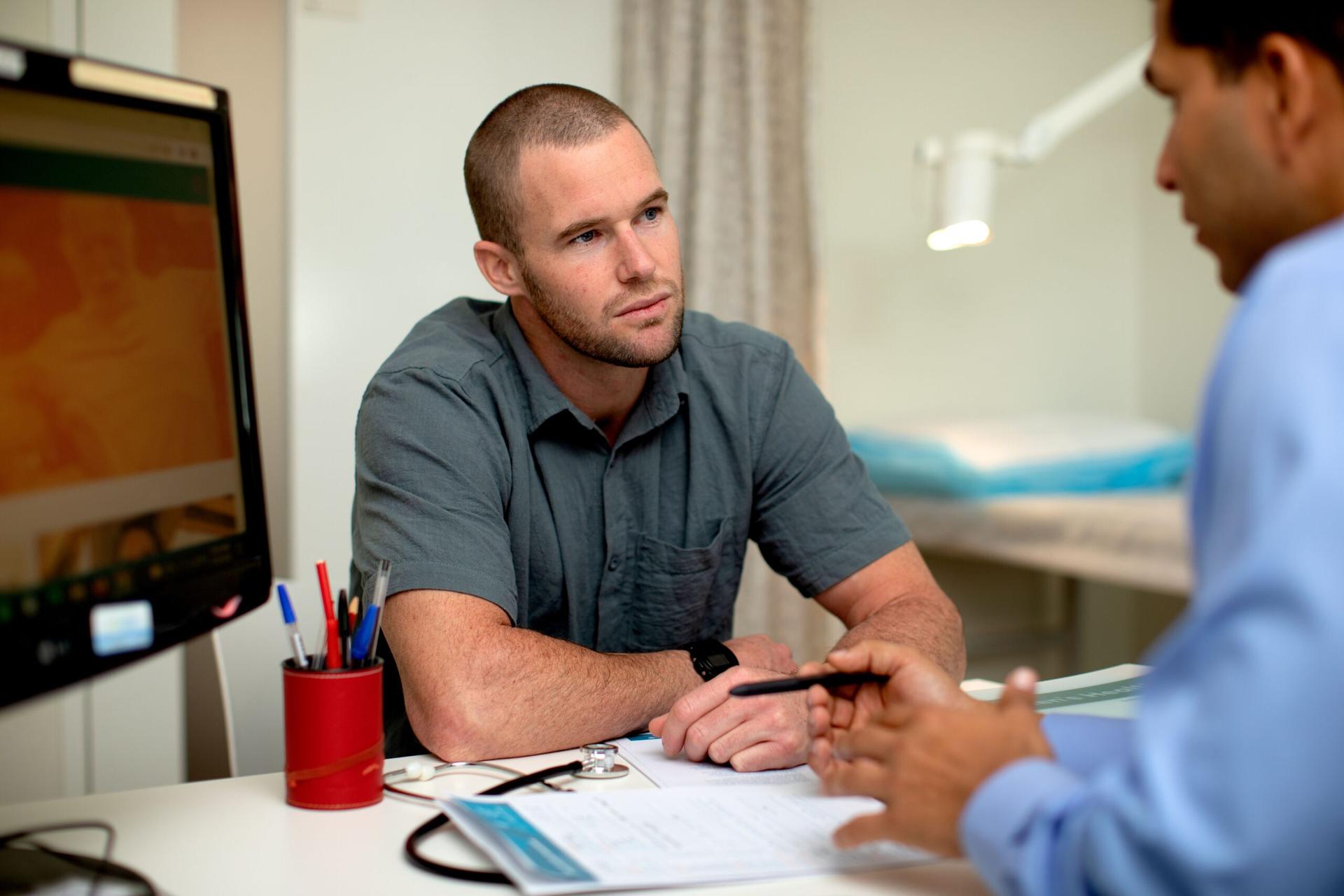Erectile dysfunction (ED) is a common condition affecting 6-64% of men aged 45-791. While treatable, ED can have a considerable impact on the wellbeing of men and their partners.
This article outlines the GP’s role in managing ED – from clinical assessment to treatment, referral and follow-up.
What is erectile dysfunction?
ED is a persistent or recurrent inability to attain or maintain a penile erection for satisfactory sexual activity. It becomes more likely with age.
ED is associated with chronic disease including cardiovascular disease and diabetes, and may be an early warning sign of these conditions2.
Premature ejaculation is occasionally related to ED, but it is a separate clinical condition that has its own distinct management. See our clinical guide to ejaculatory disorders for further information.
How to talk to patients about erectile dysfunction
GPs are typically the first point of contact for men with erectile dysfunction. However, patients may be reluctant to bring it up.
It’s especially important to discuss erectile issues with older patients as their sexual health is often overlooked.
Diagnosing erectile dysfunction
History
When taking a patient’s history, review medical, sexual and psychosocial factors.
Physical examination
Treating erectile dysfunction
Their partners’ sexual needs should also be considered as part of managing ED.
Treatment summary
For further detail about treatment options, see our clinical summary guide.
There are also emerging treatments that may play a role in the management of ED in the future. These include low dose shock wave therapy, topical nitrates and new oral agents.
When to refer the patient to a specialist
GPs may choose to refer patients to a specialist if they do not have training or experience in managing ED. Referral can also be at the patient’s request.
Following up with the patient
Follow-up is essential to ensure the best patient outcomes.
Free clinical resource
Download the clinical summary guide as a print-ready PDF:











